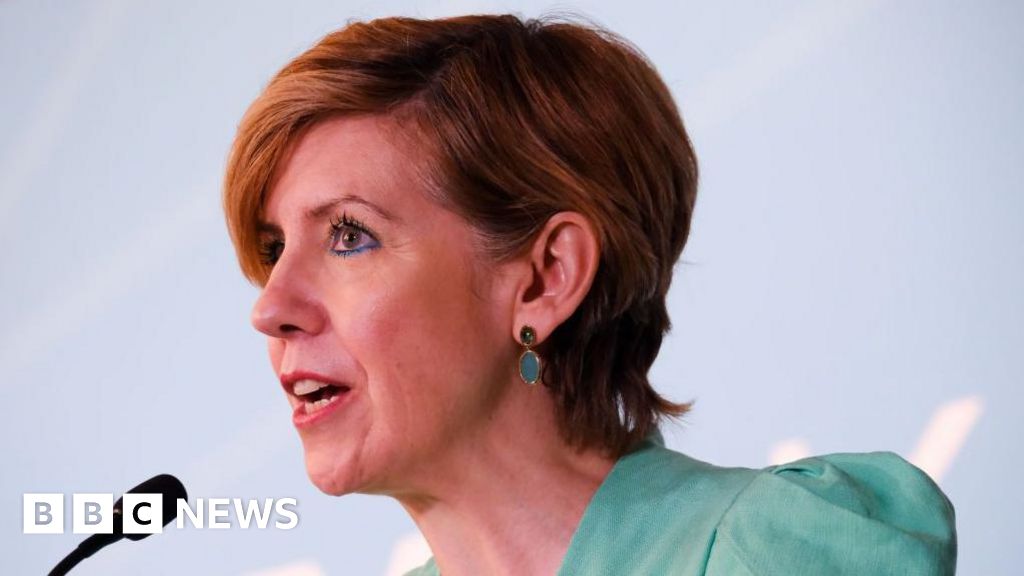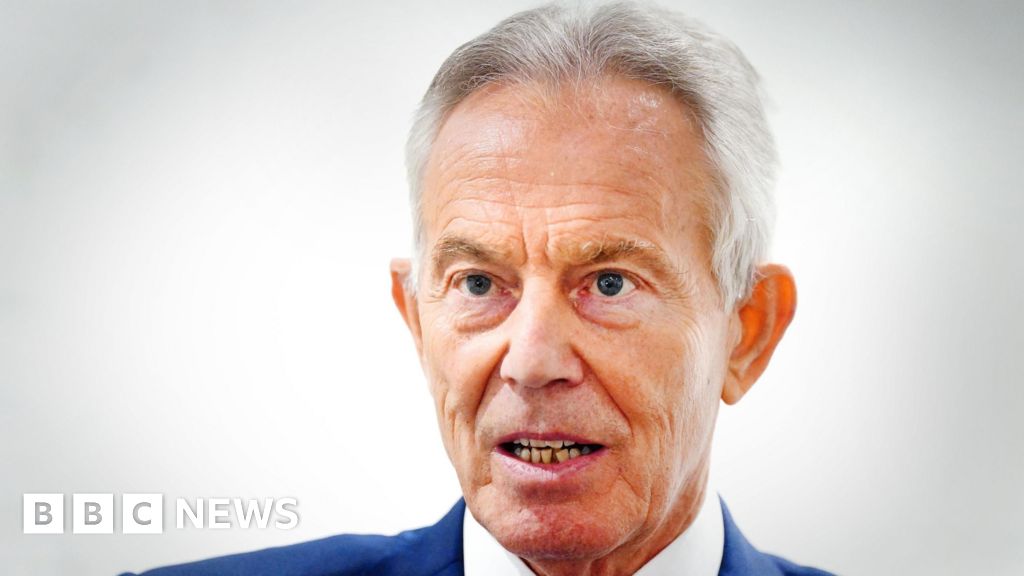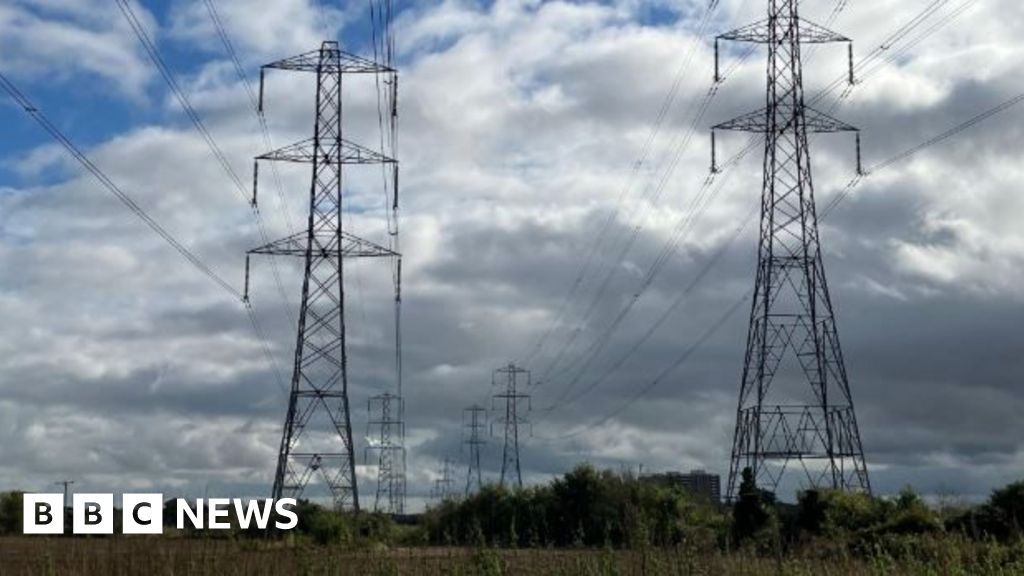ARTICLE AD BOX
By Joshua Nevett
BBC Politics
Image source, Getty Images
Image caption,The Taliban swept to power in Afghanistan after US-led forces withdrew last year
The UK's withdrawal from Afghanistan last year was a "disaster" and a "betrayal" that will damage the nation's interests for years, an inquiry by MPs has found.
The Foreign Affairs Committee said there had been "systemic failures" of intelligence, diplomacy, and planning.
"Mismanagement" of the evacuation as the Taliban quickly took over the country "likely cost lives", MPs said.
The UK government said "intensive planning" went into the withdrawal.
A spokesperson for the Foreign, Commonwealth and Development Office defended its handling of the withdrawal and said it would review and respond to the committee's findings.
But the MPs who carried out the inquiry said they had lost confidence in the department's top civil servant, Sir Philip Barton, and urged him to consider his position.
The report said Sir Philip, the then-Foreign Secretary Dominic Raab and Prime Minister Boris Johnson were all on leave when the Taliban took Afghanistan's capital, Kabul.
"The fact that the Foreign Office's senior leaders were on holiday when Kabul fell marks a fundamental lack of seriousness, grip or leadership at a time of national emergency," the cross-party committee said.
Labour's Shadow Foreign Secretary, David Lammy, said the report "highlights the scale of the government's incompetence, laziness and mishandling" of the withdrawal.
"The Conservative government has badly let down Britain's reputation on the global stage and those responsible for this calamity should be held accountable," he said.
A coalition of international forces - led by the US - completed their withdrawal from Afghanistan on 30 August 2021, marking the end of the 20-year campaign in the Middle-Eastern country.
US-led forces went into Afghanistan in 2001, removing the Taliban from power in the wake of the 9/11 attacks, which were blamed on al-Qaeda - a militant jihadist group.
The UK sent forces but ended its combat operations in 2014, leaving hundreds of troops to help train the Afghan government's army.
In February 2020, a withdrawal deal was signed by the Taliban and the US under former President Donald Trump and a year later his successor, Joe Biden, honoured the agreement.
Watch Taliban celebrate after the the last American soldier leaves Afghanistan
As the US pulled out troops and reduced military support for the Afghan army, the Taliban made rapid territorial gains, reclaiming control of the whole country by mid-August.
"The UK's part in this tragedy exposes a lack of seriousness in achieving co-ordination, a lack of clear decision-making, a lack of leadership and a lack of accountability," said Conservative MP Tom Tugendhat, who chairs the Foreign Affairs Committee.
A reminder of the horror and shame
The report brings back the sense of horror and, for some, shame generated by last August's traumatic evacuation from Kabul.
It was always inevitable that ministers and senior officials were going to be lambasted. During the committee's hearings, MPs expressed their dismay that the Foreign Office's top civil servant hadn't seen fit to return from holiday until the civilian evacuation was over.
And it was clear that they found some of the answers they received evasive and unconvincing.
Some will argue that the speed of the Taliban's takeover of the country could not have been anticipated and made planning for such a complex evacuation impossible without causing widespread panic.
It's not an argument that cuts much ice with the MPs. They say there was plenty of time to make plans and that what happened was a betrayal that will haunt the UK's international reputation for years.
In September 2021, the committee launched an inquiry to consider the role of the FCDO in the build-up to, during and after the withdrawal.
The committee published its findings on Tuesday in a report, which "identified systemic failures of intelligence, diplomacy, planning and preparation - many of which were due, at least in part, to the Foreign Office".
In key findings, the report said:
On planning for withdrawal
- The government "failed effectively to shape or respond to" the US's decision to withdraw from Afghanistan, which was known since February 2020
- The FCDO "failed to make the necessary preparations for withdrawal" by laying the groundwork for an evacuation with third countries
- There was a "total absence of a plan for evacuating Afghans who supported the UK mission, without being directly employed by the UK government"
- This "mismanagement" of the evacuation in a crucial period "likely cost hundreds of people their chance to leave the country, and as a result likely cost lives"
- The fact that the FCDO's top civil servant did not return from leave until the civilian evacuation was over "is difficult to understand and impossible to excuse"
- The FCDO gave the committee answers that were "often deliberately misleading" in response to questions about the decision to evacuate animals looked after by the charity Nowzad
On the future relationship with Afghanistan
- Attempts to isolate the Taliban "may only worsen the situation for the Afghan people, reduce the UK's influence, and leave a vacuum to be filled by powers such as China"
- The primary UK policy goal in Afghanistan "should be to reduce the impact of the humanitarian disaster unleashed by the international withdrawal"
- The withdrawal has "serious implications for British security and has "heightened the terror threat" from Afghanistan
The UK airlifted about 15,000 Afghans and British nationals out of Kabul as the Taliban took control of the country. Thousands of staff from across the UK government and partners supported the evacuation effort.
"This was the biggest UK mission of its kind in generations and followed months of intensive planning and collaboration between UK government departments," an FCDO spokesperson said.
"We are still working hard to assist the people of Afghanistan, having already helped over 4,600 individuals to leave the country since the end of the military evacuation.
"We carried out a thorough review to learn lessons from our withdrawal from Afghanistan and have drawn on many of the findings in our response to the conflict in Ukraine including introducing new systems for managing correspondence and increasing senior oversight of our operational and diplomatic response."

 2 years ago
35
2 years ago
35








 English (US) ·
English (US) ·